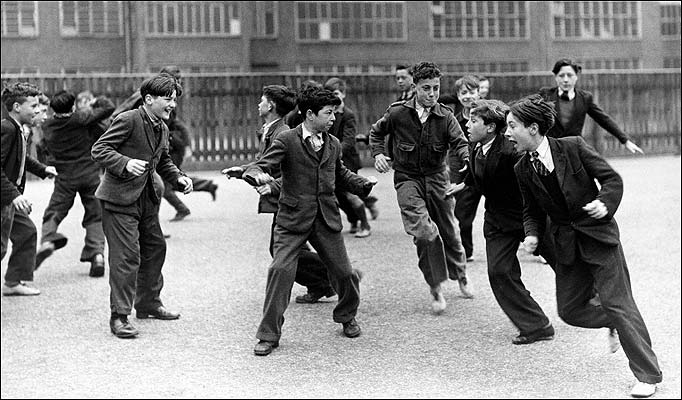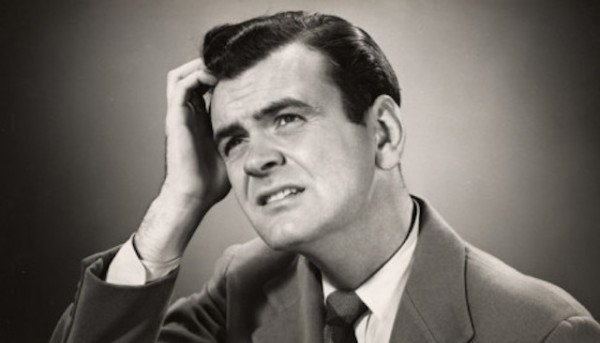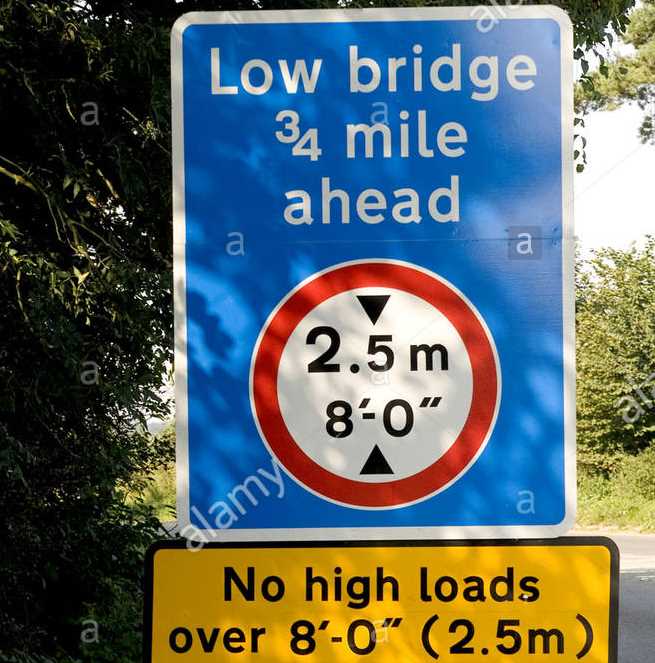Do you speak Imperial?
Share on TwitteThe British are often criticised for their lack of effort to learn languages and their insistence on using only English when travelling abroad. The majority of British people are, however, totally bilingual... in measurement systems
April 28th 2016
The British are often criticised for their lack of effort to learn languages and their insistence on using only English when travelling abroad. The majority of British people are, however, totally bilingual... in measurement systems.
Now, the imperial system is officially no longer taught in schools in the UK. However, without a basic understanding of it, you would have difficulty fully understanding pricing and quantities in the UK.
You'll quite happily have a pint of beer in a pub, but will buy the same beer in 33cl or 500ml cans in the off-licence (priced for ease of comprehension per litre).
At the petrol pump, your petrol or diesel is priced by the litre. However, instead of km/litre you undoubtedly calculate fuel consumption in miles per gallon (mpg). Why not go the whole hog and covert to km/gallon for maximum confusion?
When it comes to DIY, a nice bit of 2” by 4” will often do the trick. But is that timber 1m or 1.5m long? And there's nothing more frustrating when you cut that piece of wood a 1/4” too long and have to shave off an extra 0.635cm, is there? Planning applications and permits are expressed exclusively in metric, whereas estate agents give floor space in square feet and room dimensions in feet and inches.
TV chefs are the new kings and queens of the box. They too are totally bilingual. Add 3ml of milk to 6oz of flour... I often see in recipes random measurements, such as “... blend 400ml of coconut milk, 100g of spinach and a 2-inch piece of ginger.” An inability to understand both systems would make it impossible to follow such recipes. And does anybody actually know what a fluid ounce is??
Sport doesn't escape either. Swimming pools are generally 50m or 25m long. A snooker table is 6 or 12 feet long. The goalkeeper commands his 18 yard box and the crossbar is 8 feet high. Because of athletics, we all know how far 400m is and that 1600m is a mile.

I saw a London marathon finisher being interviewed on TV after his herculean 26 miles 385 yards effort. As he entered The Mall he knew he was nearing the finish. He saw a sign saying '385 yards to go' and inwardly groaned “What does that mean?!”, he uttered. The next sign was reassuringly '200m to go'... “Ah, not far to go now...” And a friend of mine recently posted a bike ride training session he had done; 10 mile time trial on the new bike. 23'22 / 40.6 kph average. The mind boggles!
It's no simpler on the road. The British have always used miles on their roadsigns. On Sat-Navs in the UK they use yards and miles. I was a little confused when I first heard, “after 80 yards, turn left”.
Low bridges and width restrictions are expressed in feet and inches, often also in metres (and now and again only in metres). However, these days, roads are designed and constructions are built solely using the metric system. Rules and regs for parking bays and road markings also use metres.

It's not all bad news though. The boom of large flat screen TVs and, more significantly, smartphones, has made the use of inches commonplace. Apple measures its iphone screens in inches rather than cm all around the world and everybody seems to get along with that just fine. And air traffic controllers and pilots still use feet to describe altitude.
But one can't help but observe just how ridiculous the imperial system is; 8 pints in a gallon, 12 inches in a foot, 3 feet in a yard, 16 ounces in a pound, 14 pounds in an stone...

It's crazy! Give them 2.54 cm and they'll take 1609 metres.
Should we go the whole 8.2296 metres and adopt the metric system? Would it really a bad thing if the imperial system was 1.83 metres under?
Such a dramatic changeover has already been successfully implemented once when the UK went from pounds, shillings and pence to the decimal pound. Anyone with 28.35g of common sense should be able to adopt easily.
What's clear is that British people have got the gift of understanding both languages. Some even dream in metric!
_________________________
The best days of your life...

Feb 5, 2016
The heady days of endless playtimes spent kicking a football around the playground, the thrill of kiss chase, the violence of British bulldog and the squeals of girls playing hopscotch. Fond memories.
I grew up in the UK and now live in France. Is the playground any different in France? Do French kids play the same games that I played and loved as a child?
Looking back, playtimes were a time of non-stop hustle and bustle, where you would barely work up a sweat despite hurling round at 100mph (or about 160kph...). In primary school I seem to remember a whole gang of boys stomping round the playground, arms round each other's shoulders, chanting “Who wants to play ARMY?” ad infinitum. I don't think we even managed to actually play army, but this simple act of male bonding was enough.
British bulldog became so violent and enough kids were injured that my primary school actually banned it.
Secondary school was spent mainly kicking a football around the field in all weathers, ruining school shoes and school trousers, earning the wrath of Mum on a weekly basis. We used to play Heads and Volleys, Slam or the king of football games, Wembley, which could last for whole days.
My kids now go to school in south west France and they consistently bewilder me with the French names of the games they play with their friends.
“Sorry sweetheart, I don't know that game. What do you have to do in it?”...
“Oh, you mean Tig!!!”. They are as non-plussed by the English names as I am with the French ones.
For example, “1, 2, 3, éperviers sortez” is actually the name (in Bordeaux at least) of one of my favourite childhood games, British bulldog. Epervier is apparently the French word for the bird of prey the sparrowhawk.
“And how do you choose the person who is 'on or 'it''?”, I ask. It appears that French kids do indeed still 'put their foot in' or 'faire la plouf', using rhymes such as “Plouf plouf, scooby doo est malade, on l'amène à l'hôpital, l'hôpital est fermé, scooby doo va exploser, au bout de trois, 1, 2 3...” or “Plouf, plouf, carambar, tu te barres, au bout de trois....1, 2, 3...”
Back in my day, it was “Racing car number 9, losing petrol all the time, how many gallons did he lose?”. And for the cheekier kids, the more risqué “Ip dip dog shit, you are not it...”.
Another happy childhood memory of mine is of playing Ackie for hours on end in playgrounds and in the park throughout the summer holidays. I believe it is also known as “Forty forty” in some parts of the UK, but here in south west France it is called “Cinquante pour tous”.
The old classic hide and seek is called “cache cache”, kiss chase is “trap trap bisous”, and the ubiquitous Tig (or were you a Tag person?) is called “Le Loup”.
French games which I hadn't come across include the simply named “la
tomate”which involves holding your breath until your face goes bright red. And the even more dangerous 'jeu d'écharpe” where a child scarf is tightened around a child's neck, with or without his
or her consent.
Needless to say, both games are banned at my children's school.
As I grew older and graduated onto secondary school, the football games became more serious, more intense and more violent. From Slam or Wally (Le Mur), to Heads and Volleys or 45s (apparently known as le 190), all the way to Murder Ball (a variant on Le Cul Rouge, it would seem).
As my kids grow older, I am sure I will be continually asking them to explain the rules so I can see if I know the game and whether I played it as a kid.
What's sure, however, is that I won't be carefully selecting the best conker I can find, soaking it in vinegar and letting it harden in the airing cupboard for a year. Conkers is a very British institution and has never quite caught on in France. Mind you, do British kids still play this? Is it still allowed in the playground?

For the English-speaking amongst you, what did you call Ackie, Slam and Tig? I would love to hear you feedback.
Et vous les français, dites moi s'il existe des noms différents pour ces jeux, selon votre région ou votre âge ?
_________________________
Living with French acronyms

The French employment minister, Myriam El Khomri, today came under severe fire, fluffing her lines when asked in an interview about the renewal procedures for CDD (short fixed-term contracts), proving incapable of giving a straight answer, and confusing CDD with CDI (long-term contracts).
https://www.youtube.com/watch?v=KGM9VDTLzBs
Whilst admittedly this was a huge gaff for the employment minister to make, and not fully understanding her own ministry's employment legislation is unforgivable, it does, however, raise another point; one can't help but have a little sympathy with her confusion, given the ludicrous amount of acronyms commonly used by the French on a day-to-day basis.
As a parent, a small business owner, and a resident of France, I am constantly bombarded with acronyms.
As a PME, I have recently been issued my CFE. The CCI and URSAFF are both rather helpful, but change in the world of business is constant.
I work in the training sector. Hitherto a confusing enough industry, the CPF has now replaced the DIF but runs alongside the CIF. I supply my customers with a RIB for payment of invoices.
My kids are at state school in CE1 and CM1. They love reading BD. As they grow older, there will undoubtedly be more and more QCM. Later on, they will have to choose to do a BTS, DEUG, or DUT.
I belong to an AMAP, and my wife is on the school FCPE.
When not working, millions of French people enjoy RTT, going out on their VTT, or shopping at FNAC (with prices shown HT or TTC).
They get around on the SNCF, TGV and RER.
When they get home, they relax watching TNT or TPS, and movies in VF, VM or VOSTF, spending time online and hoping that their wi-fi connection is not HS.
Politics is rife with acronyms. Politicians out of ENA populate the UMP and PS parties whilst the NF appears to be gaining in popularity. The less said about DSK the better...
Although many people are BCBG, the French have always prided themselves on having a sound social conscience. Those with low levels of income enjoy the SMIC and RMI, residing in HLM. Unfortunately there are still tens (hundreds?) of thousands of SDF. The French were also forerunners in sexual equality with the PACS.
Confusing? Just a little. The French seem to function perfectly well with these everyday acronyms. But for foreigners, it's a real minefield.
Do I think an acronym-free future is possible in France? MDR !
Glossary:
AMAP – Community-shared farming
BCBG – Preppy/sloany
BD – comic books
BTS - Advanced Technician's Diploma
CCI – Chamber of commerce and industry
CDD - short fixed-term contracts
CDI - long-term contracts
CE1 – Year 3 (GB), Grade 2 (US)
CFE – Local business tax
CIF – Training sabbatical
CM1 – Year 5 (GB), Grade 4 (US)
CPF – New Individual training entitlement
DEUG - general university studies diploma
DUT - university technological diploma
DIF – Individual training entitlement
DSK – Dominique Strauss-Kahn
ENA – Higher education institute training many civil servants
FCPE – School parents' association
FNAC – Music/book/culture store
HLM – Low income housing
HS – out of order
HT – Before taxes
MDR – LOL
PACS – Civil partnership
PME – Small business
PS – Socialist party
FN – Far right political party
QCM – multiple choice questions
RIB – Bank account information
RTT – Time off in lieu / Comp time
SFD – Homeless
SMIC – Minimum wage
RMI – Income support
SNCF – National rail company
TGV – High speed trains
RER – Commuter rail service in Paris
TNT – Digital terrestrial TV
TPS – Satellite TV
TTC – Tax included
UMP – Centre right political party
URSSAF – Social welfare collection agency
VF – Version dubbed into French
VM – Version with choice of languages and subtitles
VOSTF – Original version with French subtitles
VTT – Mountain bike
_______________________
To kiss, or not to kiss...

I am a 40-year old British man and I am confused.
You meet a friend you haven't seen in years. You shake their hand, right? Or is a fist bump more appropriate? Should I be doing a bro-hug?
Now, what about if the person in question is female. Do you shake hands? Kiss on the cheek? Stand awkwardly doing nothing?
I grew up in the UK in the 70s, 80s and 90s and since then have lived in Italy and France, where I currently live and work.
The UK at that time was a much less tactile place than it is now. I don't remember ever shaking hands with friends when at school, and recall some girls hugging rather than cheek kissing.
This changed somewhat whilst at University in the mid 90s, with the advent of the 'Friends' style bromance, and when Ab-Fab style air kissing becoming commonplace.
On top of this I spent a number of years in France between 1995 and 2001, where 'la bise' - kissing on the cheek - and daily hand-shaking is the norm for friends, family and colleagues.
In France in 2015, the rules remain clear. I know that if I meet a male friend or colleague – either for the first time or with somebody I know – a handshake is expected.
If I am meeting a female for the first time, a handshake will also be the done thing. From then on, cheek kissing will more often than not be expected.
It is only when I return to England that I experience a problem. On a visit back in the UK, I recently ran into one of my schoolfriend's mum. As a child and teenager I spent countless days at my friend's house, having lunch and dinner there, sleeping over, essentially an unofficial lodger.
I am at a loss to remember whether I had ever hugged her or kissed her on the cheek. Move forward 25 years and I found myself on the pavement totally flummoxed. What to do? In the end I dilly-dallied and did nothing. Did my friend's mum even notice my confusion?
Similarly, I encountered a female friend from school in a supermarket in the UK recently. Whilst not a close friend when I was a teen, we shared many common friends and had socialised now and again at the odd house party. Once again, I was dumbstruck at how I should act. There was a two-second interval when neither of us seemed to know what the protocol was in such a situation, before the conversation pursued its course.
So, just what is expected and acceptable when meeting and greeting in 21st century Britain? Do British people have any tried and tested protocol? Does it differ between generations? Does everyone find it to be such a minefield? And is this vastly different from the USA?



